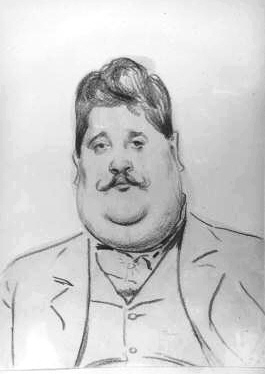Chin
Chin refers to the lowermost part of the face, situated below the mouth and comprising the lower jaw and surrounding area. It plays a significant role in human facial aesthetics, speech, and mastication. The chin's prominence, shape, and size are influenced by both genetic and environmental factors and vary widely among individuals and across different ethnic groups.
Anatomy[edit | edit source]
The chin is primarily formed by the mandible or lower jawbone, the only movable bone of the skull. The tip of the chin is called the mental protuberance, which is the part of the mandible that protrudes forward. Surrounding soft tissues, including muscles like the mentalis muscle, contribute to the chin's appearance and function. The chin's skin is often subject to acne and other dermatological issues due to its high oil gland concentration.
Function[edit | edit source]
The chin has several functions. It assists in the mechanical process of mastication (chewing) by providing a base for the lower lip and helps in the articulation of certain sounds, thus playing a role in speech. Additionally, the chin aids in facial expression, contributing to expressions of determination or defiance.
Evolution[edit | edit source]
The prominence of the human chin is unique among primates and has been a subject of evolutionary biology studies. Some theories suggest that the chin evolved as a result of sexual selection, serving as a physical indicator of attractiveness and genetic quality. Other theories propose that the chin's development was a mechanical adaptation to assist in speech and mastication.
Cultural and Aesthetic Significance[edit | edit source]
Culturally, the chin is often associated with character traits such as determination, strength, and resilience. A well-defined chin is typically seen as aesthetically pleasing and is a common goal in cosmetic surgery, with procedures such as mentoplasty (chin augmentation) and genioplasty (chin reduction) being popular for altering the chin's appearance.
Medical Considerations[edit | edit source]
Various medical conditions can affect the chin, including micrognathia (abnormally small chin), macrognathia (abnormally large chin), and retrognathia (backward displacement of the chin). Treatment for these conditions may involve orthodontics, oral and maxillofacial surgery, or cosmetic procedures.
Search WikiMD
Ad.Tired of being Overweight? Try W8MD's physician weight loss program.
Semaglutide (Ozempic / Wegovy and Tirzepatide (Mounjaro / Zepbound) available.
Advertise on WikiMD
|
WikiMD's Wellness Encyclopedia |
| Let Food Be Thy Medicine Medicine Thy Food - Hippocrates |
Translate this page: - East Asian
中文,
日本,
한국어,
South Asian
हिन्दी,
தமிழ்,
తెలుగు,
Urdu,
ಕನ್ನಡ,
Southeast Asian
Indonesian,
Vietnamese,
Thai,
မြန်မာဘာသာ,
বাংলা
European
español,
Deutsch,
français,
Greek,
português do Brasil,
polski,
română,
русский,
Nederlands,
norsk,
svenska,
suomi,
Italian
Middle Eastern & African
عربى,
Turkish,
Persian,
Hebrew,
Afrikaans,
isiZulu,
Kiswahili,
Other
Bulgarian,
Hungarian,
Czech,
Swedish,
മലയാളം,
मराठी,
ਪੰਜਾਬੀ,
ગુજરાતી,
Portuguese,
Ukrainian
WikiMD is not a substitute for professional medical advice. See full disclaimer.
Credits:Most images are courtesy of Wikimedia commons, and templates Wikipedia, licensed under CC BY SA or similar.
Contributors: Prab R. Tumpati, MD


